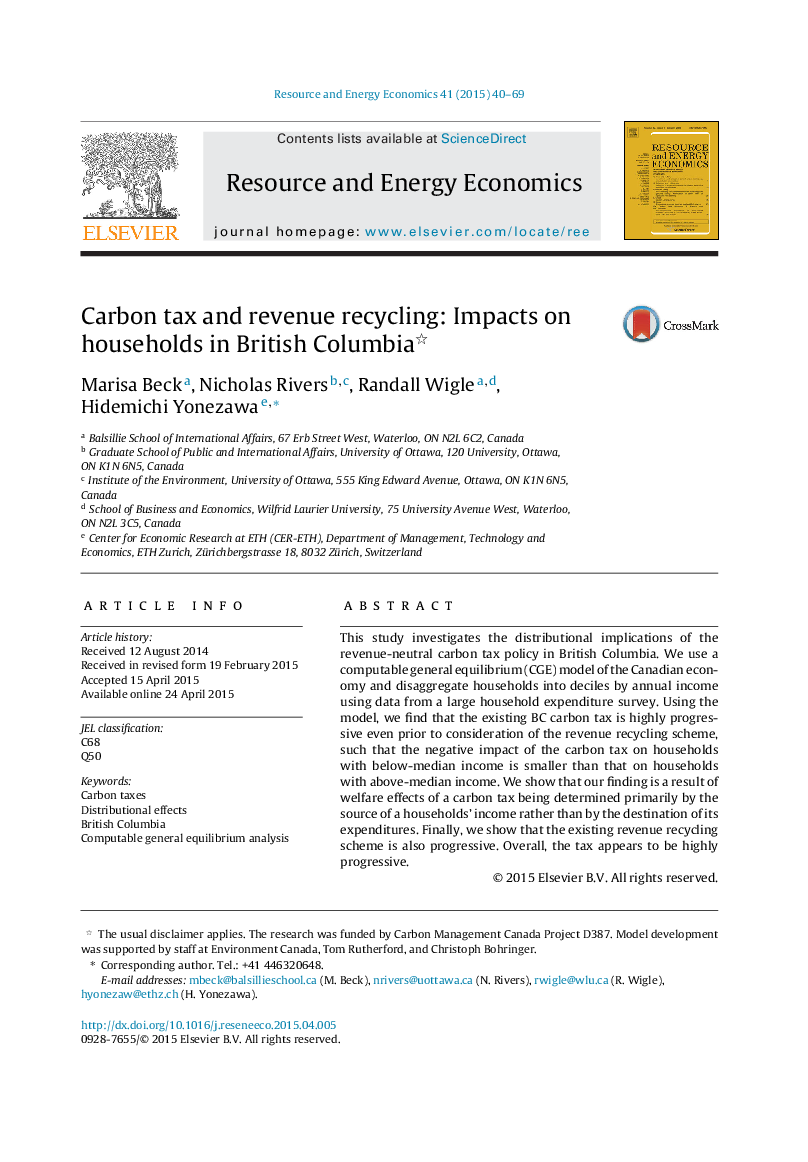| Article ID | Journal | Published Year | Pages | File Type |
|---|---|---|---|---|
| 985518 | Resource and Energy Economics | 2015 | 30 Pages |
•We study the distributional impact of the existing carbon tax in British Columbia.•We use a computable general equilibrium (CGE) model of the Canadian economy.•The carbon tax is highly progressive even without the revenue recycling scheme.•Income source instead of expenditure pattern drives the progressive incidence.•The revenue recycling scheme is also progressive.
This study investigates the distributional implications of the revenue-neutral carbon tax policy in British Columbia. We use a computable general equilibrium (CGE) model of the Canadian economy and disaggregate households into deciles by annual income using data from a large household expenditure survey. Using the model, we find that the existing BC carbon tax is highly progressive even prior to consideration of the revenue recycling scheme, such that the negative impact of the carbon tax on households with below-median income is smaller than that on households with above-median income. We show that our finding is a result of welfare effects of a carbon tax being determined primarily by the source of a households’ income rather than by the destination of its expenditures. Finally, we show that the existing revenue recycling scheme is also progressive. Overall, the tax appears to be highly progressive.
